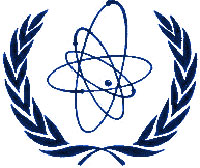IAEA inspectors to return to North Korea
International Atomic Energy Agency (IAEA) inspectors will return to North Korea following a de-nuclearisation agreement reached at the six-party talks.

Speaking at a news conference with Luxembourg's Foreign Minister Jean Asselborn in Luxembourg, IAEA head Mohamed ElBaradei said the IAEA would resume inspections in North Korea to 'ensure that all nuclear activities are for peaceful purposes'.
He did not give a time for the inspections, but said it would be discussed at a meeting of the Vienna-based agency's board of governors slated for March 6, Xinhua reports.
As Pravda.ru previously reported Six countries reached a tentative agreement Tuesday on initial steps toward North Korea's nuclear disarmament that could usher in the first concrete progress after more than three years of talks marked by delays, deadlock and the communist country's first nuclear test explosion.
The U.S. envoy to the talks, Assistant Secretary of State Christopher Hill, said the tentative deal on the North's nuclear program was supported by the U.S. government.
The draft agreement contained commitments on disarmament and energy assistance along with "initial actions" to be taken by certain deadlines, Hill said earlier.
He declined to give further details of the draft struck after a marathon 16-hour negotiating session, the AP reports.
The New York Times reported that the draft called for North Korea to complete the "permanent disablement" of its main nuclear facilities at Yongbyon within 60 days.
The newspaper said the U.S., South Korea and China would provide aid under the deal.
The Japanese newspaper Yomiuri Shimbun said the North would get an initial aid supply worth 50,000 tons of heavy oil after it shuts down the reactor and allows international inspectors. North Korea would get an additional 950,000 tons upon completing that first step and agreeing to disable its nuclear facilities, it said.
Conservative critics in Washington said it resembled the nuclear freeze negotiated by the Clinton administration in 1994, which was much derided by the Bush White House as naive, and which broke down in 2002 over US allegations of covert uranium enrichment.
Condoleezza Rice, the US secretary of state, rejected the parallel with 1994, arguing: "This implementing agreement has the advantage of being multilateral" involving North Korea's powerful neighbours such as China and Russia who had the power "not only to make a deal to but to make sure one sticks".
She said it should be seen "as a message to Iran" that the international community can achieve important results when it worked together.
Diplomats from the region generally welcomed the agreement but said it left the most difficult decisions about denuclearisation still to be faced, the Guardian reports.
Source: agencies
Prepared by Alexander Timoshik
Pravda.ru
Subscribe to Pravda.Ru Telegram channel, Facebook, RSS!





